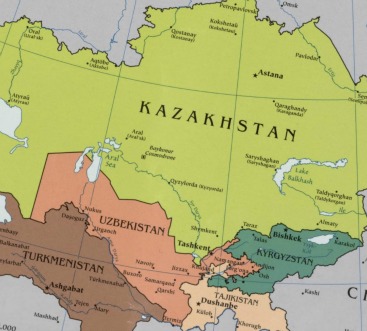Central Asia remains a region with one of the worst record on religious freedom, and Uzbekistan and Turkmenistan are the two most repressive regimes in the entire OSCE region. I therefore want to thank Christian Solidarity Worldwide and the Open Society Institute for holding this event to shine a light on these two countries. I also want to say it’s a pleasure to be here today with Kimmo Kiljunen, my colleague from the Finish delegation.
The U.S. Helsinki Commission, of which I am a part, has actively engaged all five “Stans,” and especially these two. With Uzbekistan, despite accepting OSCE commitments to the contrary, the Karimov regime continues its policies of prohibiting unregistered religious activities, jailing thousands of Muslims, and prohibiting the ability of individuals to share their beliefs. Since the Andijon killings last May, the regime has clamped down even harder on all freedoms, but especially religious liberties. Reports indicate that twelve churches have since been stripped of registration, thus making any religious activity “illegal” and subject to significant penalties. There is even concern that a pastor in Andijon may be sentenced to up to 10-20 years in jail for his church work, forcing him to flee the country. The suppression of independent Muslim activity continues unabated, with Forum 18 now reporting that authorities are attempting to stop Muslim schoolchildren from attending mosques.
The United States has always recognized that Uzbekistan faces real threats from extremists operating behind the guise of religion and our efforts to urge moderation should never be construed as supporting their ideology or activities. While the tragic events in Andijon were not specifically related to religious freedoms, the spark that ignited the protests was the over zealous prosecution of an Islamic sect. I will therefore continue to urge Uzbekistan to bring its policies into conformity with its OSCE commitments on religious liberties and allow the free practice of religion for all. However, due to the deteriorating conditions for religious freedom, I also believe that sanctions under the International Religious Freedom Act, passed by the Congress in 1998, should also be considered by the State Department.
In neighboring Turkmenistan, the Niyazov regime continues to limit the abilities of its citizens to fully enjoy their religious liberties. The recent arrest of local human rights defenders and their relatives on the eve of a European Parliament delegation visit graphically demonstrates the repressive and paranoid nature of the Niyazov regime. Despite some modifications in their laws regulating religious practice, Turkmenistan continues to prohibit unregistered religious activities and to harass both registered and unregistered communities. Independent Muslim and evangelical groups, the Russian Orthodox Church and the Catholic Church all continue to experience problems in obtaining registration and operating freely. The former grand mufti also remains jailed. I will continue to raise with Turkmen officials the need to end the ban on unregistered religious activity, to register all groups so desiring, and to end the harassment of all communities. Although there have been some modest reforms in the past, if Turkmenistan doesn’t restart the reform process, I also believe that sanctions under the International Religious Freedom Act may be warranted.
Although this event focuses on religious freedom in Uzbekistan and Turkmenistan, I do want to comment on a current development in Kazakhstan regarding media freedoms. Kazakhstan does have a better record on religious freedom than these two other countries. However, I was very disappointed that President Nazarbaev signed into law yesterday a very problematic bill that could severely limit freedom of expression. Some of the troubling aspects of the new law include that it reportedly doubles the number of grounds on which authorities may deny a media outlet registration; creates unduly restrictive registration procedures for new media outlets and re-registration procedures for existing media companies; and provides authorities with further opportunities to censor critical media. Considering the criticism the bill received from international and domestic media groups, and considering that Kazakhstan wishes to chair the OSCE in 2009, I am distressed that the President would sign this flawed law into force. I therefore urge the Government of Kazakhstan to revise the new law to ensure that OSCE norms on media freedom are fully respected.
In closing, I want to thank CSW and OSI for convening this event and I look forward to working with you all in the future. By working together, we can hopefully motivate Uzbekistan and Turkmenistan to moderate their oppressive policies towards religious freedom.









